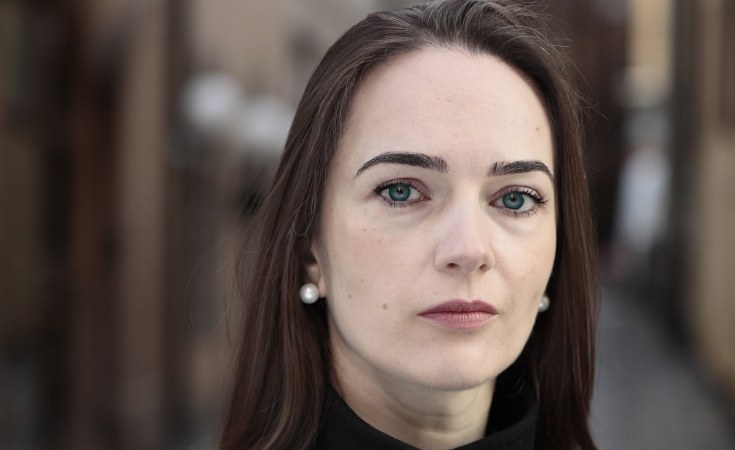A few weeks ago, South Africa and Ukraine discussed the possibility of visa-free access to South Africa for diplomats from Ukraine. When the decision is made, it will be another step towards strengthening ties between our countries. Although South Africa and Ukraine are geographically far from each other, we have more in common than we can imagine. People in both South Africa and Ukraine know what it means to fight for freedom. For us, the battle continues.
Ten years ago, millions in Ukraine courageously rose against a corrupt authoritarian regime. They demonstrated peacefully for a country where everyone's rights are protected, the government is accountable, courts are independent, and police don't beat peaceful student protesters. When that regime fell, Ukraine seized its chance for democratic transformation. But to halt this progress, Russia intervened. In February 2014, Russia occupied Crimea and parts of eastern Ukraine, then expanded the conflict into a full-scale invasion in February 2022—all because Putin feared the idea of freedom.
As a human rights lawyer, I have used the law for many years to defend people and human dignity. However, now, the law does not work.
Although South Africa and Ukraine are geographically far from each other, we have more in common than we can imagine
As you know, Russian troops are destroying residential buildings, churches, museums, schools, and hospitals in Ukraine. They are shooting at the evacuation corridors. They are torturing people in filtration camps. They are forcibly taking Ukrainian children to Russia. They ban the Ukrainian language and culture. They are abducting, robbing, raping, and killing in the occupied territories. However, the entire UN system of peace and security is unable to stop it.
I am at a loss. How will we, in the 21st century, defend our lives, dignity, and freedom? Can we rely on the law – or does only brutal force matter? It is important to understand that this is not a question only for the people in Ukraine, Syria, Iran, Sudan, or Nicaragua. The answer to this question will define our common future.
Because this is not just a war between two states; this is a war between two systems – authoritarianism and democracy. Russia wants to convince the entire world that democracy, human rights, and the rule of law are fake values. Because they do not protect anyone caught in the war. Russia wants to convince that a state with a powerful military potential and nuclear weapons can break the rule-based order, dictate its rules to the international community, and even forcibly change internationally recognised borders.
If Russia succeeds, it will encourage authoritarian leaders in various parts of the world to do the same. The international system of peace and security does not work anymore. Democratic governments will be forced to invest money not in education, health care, culture, or business development, not in solving global problems such as climate change or social inequality, but in weapons. We will witness an increase in the number of nuclear states, the emergence of robotic armies, the use of AI as a method of war, and new weapons of mass destruction. If Russia succeeds and this scenario comes true, we will find ourselves in a world that will be dangerous for everyone without exception.
We live in rather challenging times. Based on the UN Charter and international law, the rule-based order is collapsing in front of us. We have entered a period of turbulence, and now fires will occur more and more frequently in different parts of the world because the international wiring is faulty and sparks are everywhere.
Defending human rights worldwide, including in Africa, requires us to accept a shared responsibility to hold aggressors accountable. Choosing democracy means protecting human rights and resisting impunity. Turning a blind eye to atrocities in Ukraine and elsewhere endangers humanity as a whole.
I have been working with the law for many years, and I know that even if you cannot rely on international mechanisms, you can always rely on people. We are used to thinking in categories of states and interstate organisations. But ordinary people have much more impact than they can even imagine.
Ukraine is now following Nelson Mandela's example
Immediately after the Russian invasion of Ukraine, international organisations evacuated their personnel. But ordinary people remained and started to do extraordinary things. Ordinary people supported those in the combat zone, took people out of ruined cities, helped to survive under artillery fire, rescued people trapped under the rubble of residential buildings, and broke through the encirclement to deliver humanitarian aid.
And then, it became obvious that ordinary people fighting for their freedom are stronger than the second army of the world. That ordinary people can change the world history.
South Africa has extensive experience in fighting against apartheid and human rights violations. Ukraine is now following Nelson Mandela's example: "Our march to freedom is irreversible. We must not allow fear to stand in our way."
Ukrainian human rights lawyer and Nobel Peace Prize winner Oleksandra Matviichuk was visiting South Africa to speak at the Sandton Convention Center in Johannesburg, focusing on 'How We Win: Ways Forward for the Global Democracy Movement', and at the 14th Desmond Tutu International Peace Lecture on 'Courageous Conversations between Women Human Rights Defenders' on the 2024 theme for the lecture - Bearing Witness: Speaking Truth to Power for Peace and Democracy.


